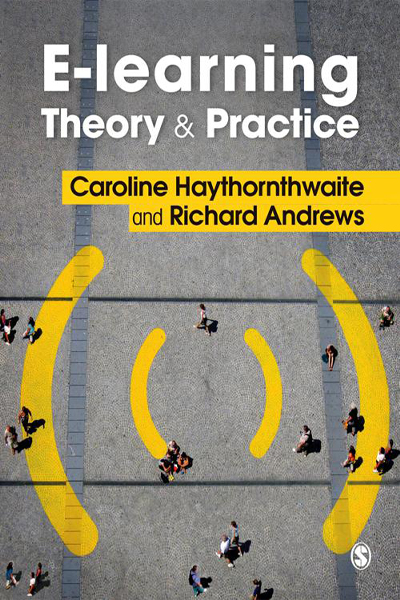 CINVU at a Glance
CINVU at a Glance
E-learning Theory and Practice
Publisher : Haythornthwaite, C., & Andrews, R.
Date published : 2011
The authors present new perspectives on the subject by:
Exploring the way teaching and learning are changing with the presence of the Internet and participatory media
Providing a theoretical grounding in new learning practices from education, communication and information science
Addressing e-learning in terms of existing learning theories, emerging online learning theories, new literacies, social networks, social worlds, community and virtual communities, and online resources
Emphasizing the impact of everyday electronic practices on learning, literacy and the classroom, locally and globally.
This book is for everyone involved in e-learning. Teachers and educators will gain an understanding of new learning practices, and learners will gain a sense of their new role as active participants in classroom and lifelong learning. Graduate students and researchers will gain insight into the direction of research in this new and exciting area of education and the Internet.
Chapter 1: The New Media
Chapter 2: Theories of Learning
Chapter 3: Theorizing Online Learning
Chapter 4: New Literacies, New Discourses in E-Learning
Chapter 5: Participatory Cultures
Chapter 6: Learning Communities
Chapter 7: Sociotechnical Perspectives
Chapter 8: E-Learning Ecologies
Chapter 9: Ubiquitous Learning, Ubiquitous Learners
Chapter 10: E-Inclusion and Exclusion
Chapter 11: Cross-Cultural Issues
Chapter 12: Researching E-Learning
Caroline Haythornthwaite is a professor emerita at Syracuse University School of Information Studies. She served as the School's director of the Library Science graduate program from July 2017 to June 2019.She previously served as Director and Professor at the Library, Archival and Information Studies, School of SLAIS, at The iSchool at The University of British Columbia (UBC). Her research areas explore the way interaction, via computer media, supports and affects work, learning, and social interaction, primarily from a social-network-analysis perspective.
Richard Andrews has held professorships at the Universities of Hull, York, UCL Institute of Education and the University of East Anglia. e is a Fellow of the Royal Society of Arts and an elected Fellow of the Academy of Social Sciences. He is a member of the All Souls Group (Oxford) on education policy and an associate of the Centre for Science and Policy at the University of Cambridge. His main research interests are in argumentation in schools and higher education; poetics and contemporary rhetoric; and research methods in digital education.
Cite: Haythornthwaite, C., & Andrews, R. (2011). E-learning theory and practice. Sage Publications